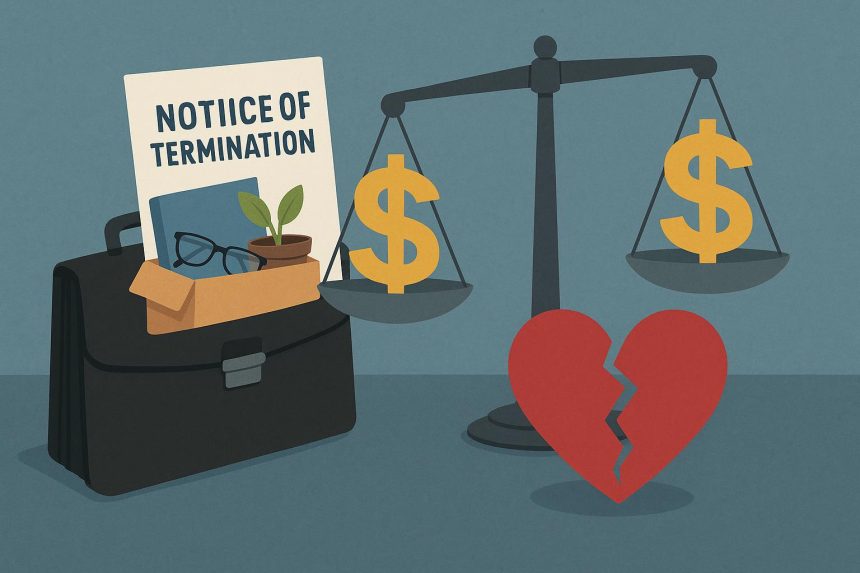Losing a job is stressful on its own, but it becomes even more overwhelming when someone is responsible for ongoing alimony payments. Many people wonder what will happen if their income suddenly changes, especially after a long-term marriage. At Kirker Davis, the team regularly works with clients who are concerned about how job loss could impact their financial obligations. The good news is that options are available, but it is essential to understand the process before making any decisions. This article will walk through what to know and how to stay protected.
Understanding Alimony in Texas
In Texas, alimony is legally referred to as spousal maintenance, which is financial support that one spouse may be required to pay to the other after divorce. The amount and duration of support often depend on factors like the length of the marriage, each spouse’s income, and their ability to meet basic needs. In long-term marriages, courts may be more likely to order more extended periods of support, making it especially important to understand how these rules work.
What Happens When a Paying Spouse Loses Their Job
When a paying spouse loses their job, alimony payments do not automatically stop or decrease. The existing court order remains in place, which means payments must continue unless a judge approves a modification. Failing to pay without court approval can lead to serious legal and financial consequences.
Can You Modify Alimony After Job Loss
Yes, alimony can be modified in Texas if there is a significant change in circumstances, such as an involuntary job loss or a change in financial circumstances. The court will review whether the change makes it unfair or impossible to continue paying the original amount. However, voluntary unemployment usually does not qualify for a reduction.
Steps to Take If You Lose Your Job
If you have recently lost your job and are concerned about alimony, the best course of action is to take immediate steps. The sooner you get organized, the better your chances of protecting yourself and avoiding unnecessary stress.
Document the Job Loss
Keep copies of termination letters, severance agreements, or any written notice from your employer. Having this documentation demonstrates to the court that your job loss was genuine and not voluntary.
Review Your Finances
Take a close look at your current income, savings, and monthly expenses. This will help you understand what you can realistically afford and provide evidence if you need to request a modification.
Consult with an Attorney
Reaching out to a family law attorney can give you clear guidance on your options. They can explain the steps needed to file for a modification and represent your best interests in court.
File for a Modification Quickly
Do not wait to act, because the court will not change your alimony retroactively. Filing as soon as possible demonstrates that you are taking the situation seriously and making an effort to fulfill your obligations.
How Courts Decide Whether to Adjust Alimony
When someone asks the court to modify alimony after a job loss, the judge does not make the decision lightly. Instead, several factors are reviewed to determine whether a change is fair for both spouses.
Efforts to Find New Employment
The court will want to determine whether the paying spouse is actively seeking employment. Evidence of job applications, interviews, or retraining efforts can show that the loss of income is being taken seriously.
Financial Needs of Both Spouses
Judges carefully consider whether the receiving spouse still relies on alimony to meet basic needs. They also review whether the paying spouse has any other sources of income or assets that could cover support.
Length of Unemployment and Likelihood of Recovery
A short period of unemployment may not be sufficient to warrant a support change. However, if the job loss is expected to last longer, the court may be more open to adjusting the order.
Overall Fairness of the Situation
Courts aim to balance fairness, making sure the paying spouse is not burdened beyond their means while still protecting the receiving spouse. Each case is unique, and the judge’s goal is to reach an outcome that reflects the realities both parties face.
Common Misconceptions About Alimony and Job Loss
There are many misunderstandings about how alimony works when someone loses their job. Clearing up these myths can help both spouses know what to expect and avoid costly mistakes.
Alimony Automatically Stops After Job Loss
Some people think payments can pause as soon as income disappears. In reality, the order stays in place until a court approves a modification.
Only the Paying Spouse’s Finances Matter
It may seem like the judge only looks at the spouse who lost their job. In truth, the court reviews the financial situations of both spouses before making a decision.
Long-term Term Marriages Guarantee No Changes
A common belief is that the longer the marriage, the harder it is to reduce alimony. While long-term marriages can lead to longer support awards, job loss remains a valid reason to request a modification.
Voluntary Unemployment Is Treated the Same as Job Loss
Some assume that any drop in income will justify a change in payments. However, if someone quits a job intentionally or avoids working, the court is unlikely to reduce support.
Why Legal Guidance Matters
Navigating alimony after a job loss can feel overwhelming, and trying to handle it alone often leads to mistakes. An experienced attorney can guide you through the process, explain your options, and make sure your rights are protected. With the proper legal support, you can approach the situation with more confidence and clarity.
Conclusion
Losing a job while paying alimony is challenging, but it does not mean you are without options. The key is to understand your rights, act quickly, and seek the proper support before making big decisions. At Kirker Davis, the team is ready to help you navigate these changes and find a path forward that protects your future.
Lynn Martelli is an editor at Readability. She received her MFA in Creative Writing from Antioch University and has worked as an editor for over 10 years. Lynn has edited a wide variety of books, including fiction, non-fiction, memoirs, and more. In her free time, Lynn enjoys reading, writing, and spending time with her family and friends.















